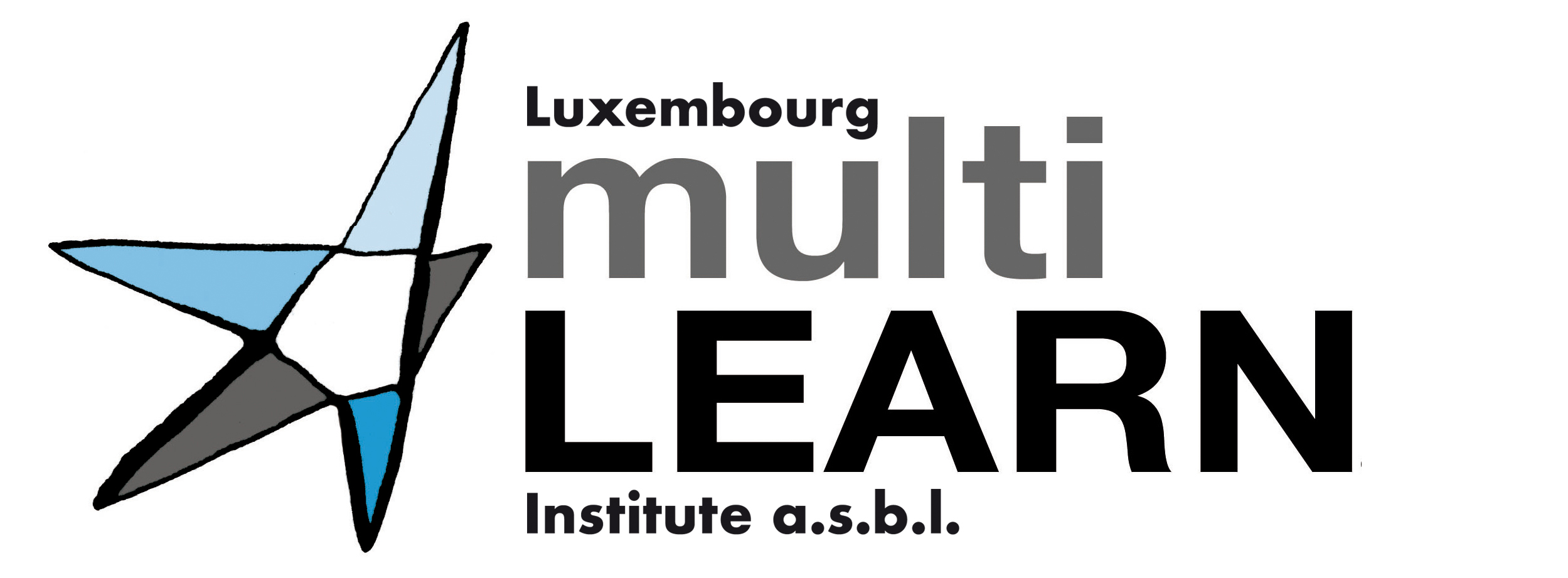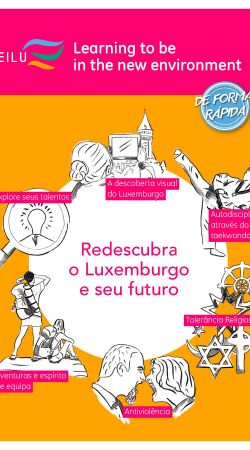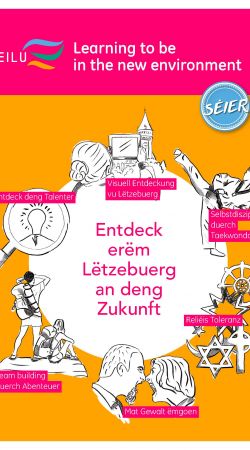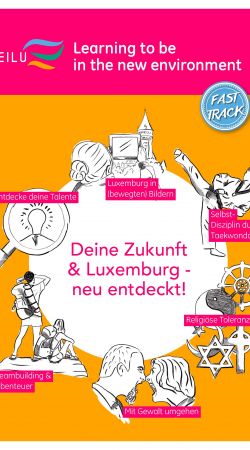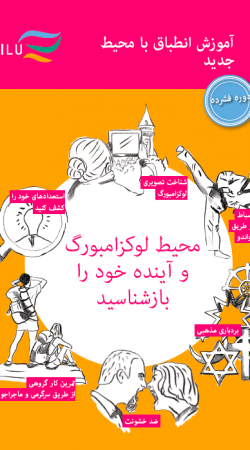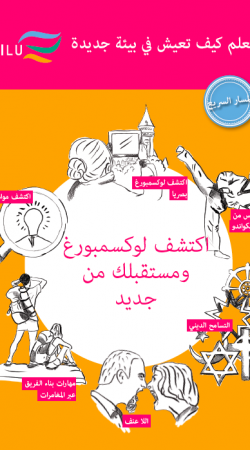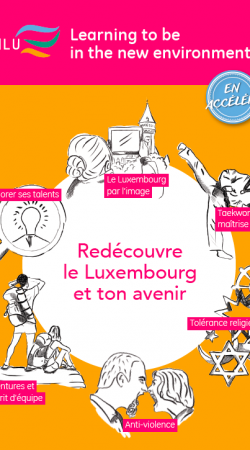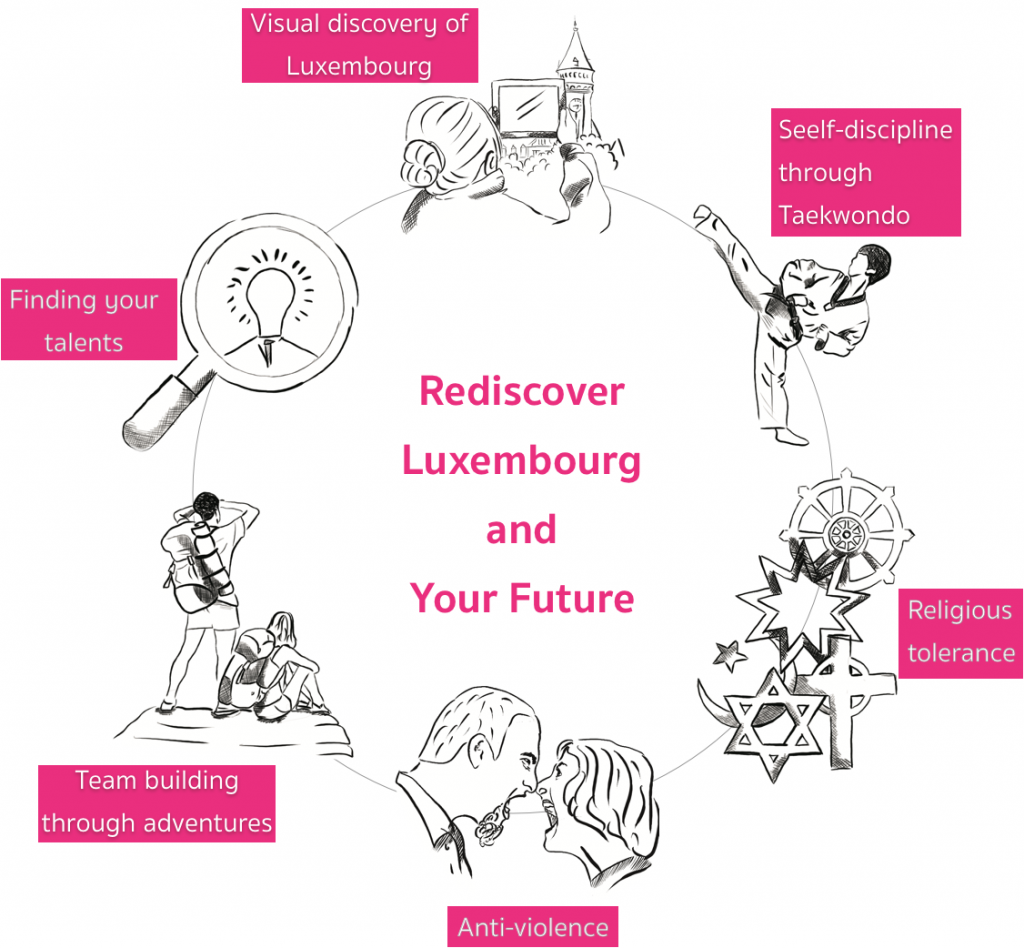
The 6 Modules of the LEILU Project
Project LEILU, “Learning to be in the new environment – a holistic approach for youngsters in Luxembourg”, was launched in 2016 in the midst of the so-called “refugee crisis”, with the financial support of the Œuvre Nationale de Secours Grande-Duchesse Charlotte within its initiative mateneen (meaning ‘together’ in Luxembourgish). Targeting young people (ages 15-30) in Luxembourg, and focusing on–but not limited to–asylum seekers and refugees, the project aims to help them use their spare time in a more meaningful way. Furthermore, its objective is to enable them to gain the possibility to transform the time for transition (e.g., school failure, searching for a job, and arriving in a new environment, in the case of asylum seekers) that often produces frustration and doubt, into an opportunity to (re)discover themselves, others and the environment surrounding them.
Participants of LEILU participated in six different activities or modules divided into three domains: “Me and myself” (modules of Anti-violence, Self-discipline through Taekwondo), “Me and others” (Team Building through Adventures, Finding your Talents), and “Me and the environment” (Religious Tolerance, Visual Discovery of Luxembourg. The six modules of LEILU were designed to help its participants to develop empowerment, tolerance, respect, and the socio-cultural values of Luxembourg (and Europe), and to help facilitate interactions between refugees and local community members.
From January 2017 until now, over 370 participants from 49 different countries took part in project LEILU. LEILU offered more than 36 activities (some of which are composed of two-to-four-day activities), workshops, and training. LEILU made partnerships with 19 non-profit organisations and companies, and offered about 20 internships, two of which led to work contracts.
Participants of LEILU participated in six different activities or modules divided into three domains: “Me and myself” (modules of Anti-violence, Self-discipline through Taekwondo), “Me and others” (Team Building through Adventures, Finding your Talents), and “Me and the environment” (Religious Tolerance, Visual Discovery of Luxembourg. The six modules of LEILU were designed to help its participants to develop empowerment, tolerance, respect, and the socio-cultural values of Luxembourg (and Europe), and to help facilitate interactions between refugees and local community members.
From January 2017 until now, over 370 participants from 49 different countries took part in project LEILU. LEILU offered more than 36 activities (some of which are composed of two-to-four-day activities), workshops, and training. LEILU made partnerships with 19 non-profit organisations and companies, and offered about 20 internships, two of which led to work contracts.
Me in Luxembourg
Visual Discovery of Luxembourg: participants interpret what they see, how the society they are in has been constructed in the way it is now; explore the history, culture and values of Luxembourg and get familiarized to the reality. They are given a chance to think about their past experiences in reflection of the films they watch.
Me and myself
Self-Discipline through Taekwondo: participants learn to develop mind and body discipline, concentration, and perseverance, how to release stress, and accomplish empowerment.
Me in Luxembourg Religious Tolerance: participants learn how to interact with others who have different ideas; learn how to tolerate and respect one another, learn to appreciate cohabitation with people from different background, culture and ideas.
Me and myself
Anti-Violence: participants learn to explore potential causes of conflicts and violence; learn the impact of conflicts and violence, learn how to transform negative impulse into self-discipline and tolerance.
Me with others
Team Building through Adventures: participants learn how to overcome an obstacle, learn how to solve a problem together with team members, learn how to cooperate with each other to reach a certain goal.
Me with others
Finding your talents: participants learn about themselves and discover their skills and potentials, explore how a certain profession is carried out and what kind of skills are required. They are provided with information that is necessary for them to know to plan and construct their future.
